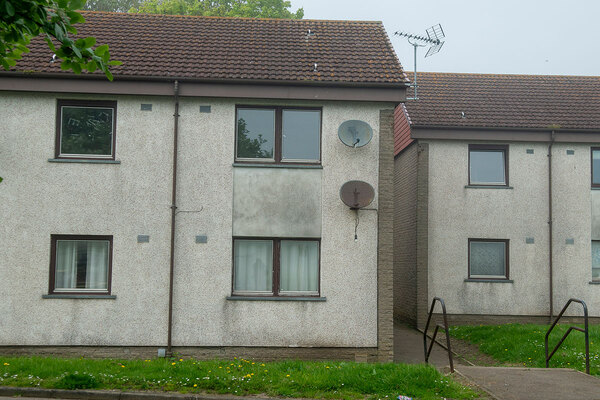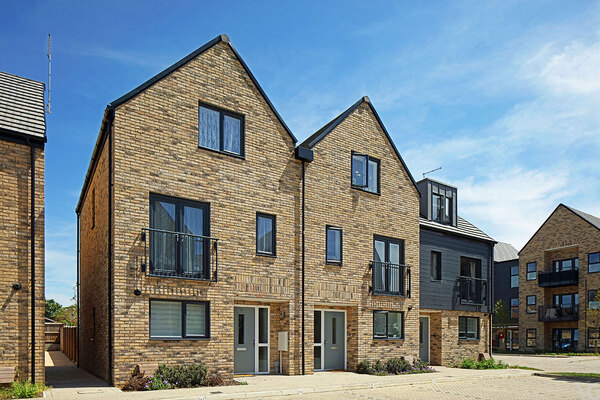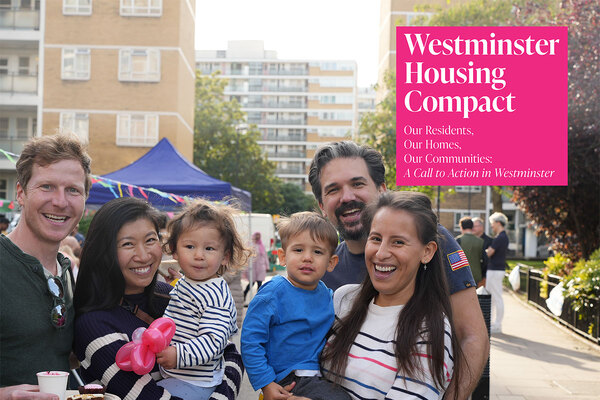Forget about rebranding social housing – let’s focus on being useful
The sector should drops any ideas of rebranding itself and instead focus on delivering a good service. That’s what tenants really care about, says Paul Taylor
During last month’s Inside Housing Twitter chat on the subject of whether the sector could get better at making its story heard, an interesting question emerged: does social housing really need to be a ‘brand’ at all?
In even debating the issue of brand it might be that we are wasting time, energy and resources that would be better spent addressing far more important issues.
Those with long memories may recall the controversial “in business for neighbourhoods” rebrand by the National Housing Federation in 2003.
Rather than change the face of the sector, it became better known for its rather expensive price tag, and was instead dubbed “invisible for neighbourhoods”.
Unfair? Perhaps. But let’s be honest. Rebrands are only ever truly popular in the boardroom and within marketing teams. Everyone else only really cares about the quality of the end product or service.
Despite this, the housing sector has a long and distinguished tradition of navel-gazing about brand awareness.
Do people understand us?
How can we make our message stand out?
How can we improve our image and reduce the stigma of social housing?
It’s often unclear what particular problem these questions are aimed at addressing, which is probably why we’ve never actually answered them.
I’ve recently seen suggestions that the term ‘social housing’ should be dropped altogether because of the negative connotations of the word social. It’s ironic that these debates take place on ‘social’ media which seemingly has no such problem.
I’ve long thought that any issue with the image of the sector lies a lot closer to home.
Too often the stories we tell are framed in a deficit mindset. A focus on worklessness, debt, digital exclusion, anti-social behaviour and domestic violence. When you continually make the link between ‘social housing’ and ‘social problems’ and imply that the only way out of this is a programme, project or model run by well-meaning professionals, you can’t really blame others for any stigma.
And is it even possible for such a varied and broad sector to have a singularly understood brand in the first place?
There is an argument to say that a distinctive brand is needed to get the attention of investors or politicians.
Similarly there’s a case to be made for shared ownership and sales, which operate in a genuine marketplace and have to compete against the best of the private sector. And perhaps an employer brand is needed to attract people to want to work for you.
Everywhere else, though, brand is increasingly meaningless.
Smart organisations know that it’s now customers rather than communications teams who own the brand. Those who think otherwise are deluding themselves.
“I’m willing to bet that there isn’t a single tenant in the whole of the UK whose first waking thought in the morning is ‘I must check what my landlord is saying on Twitter’. It’s just not important to people”
Like it or not, tenants, employees and even competitors can now use any one of the numerous social media outlets or review sites to build, maintain or ruin your reputation.
Believing in an organisation based on what it says on its own website is as foolish as recruiting someone solely on their LinkedIn bio. And I’m willing to bet that there isn’t a single tenant in the whole of the UK whose first waking thought in the morning is “I must check what my landlord is saying on Twitter”. It’s just not important to people.
If you deliver something useful, then you don’t need to worry about what people say or think about you. Branding is about simplicity and usefulness.
You brand is weakened every time you miss or change a repairs appointment or let a customer
down. Your brand is weakened further when you pump out good news stories or satisfaction scores that say everything is OK when everyone knows that doesn’t reflect reality.
Us just saying “everyone should value and appreciate social housing” isn’t useful. It’s advertising, which doesn’t work anymore because nobody believes it.
Coming up with meaningless, interchangeable taglines and changing your font improves things for no one.
Let’s drop talk about the sector image. Let’s work for authenticity. Let’s work for positive change.
Let’s work for transparency.
Forget what social housing is called. Let’s work on what it can do, and what it should be.
Paul Taylor, innovation coach, Bromford











